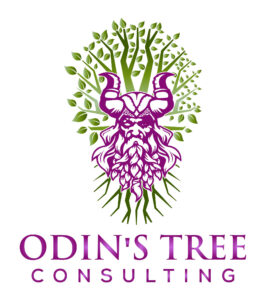In a competitive job market, finding the right candidate for an opening can be a daunting task. As an HR consultant, it is my duty to guide organizations in making informed hiring decisions. However, being overly picky when it comes to candidates can have detrimental effects on your brand. In this article, we will explore why being too selective can be a brand killer and provide insights on finding a balance between quality and quantity.
- Limited Pool of Talent
One of the major drawbacks of being too picky is narrowing down the pool of potential candidates. While it is essential to have specific criteria in mind, being overly stringent can result in a limited talent pool. This can be detrimental to your brand as it may be perceived as exclusionary or lacking diversity. By casting a wider net, you increase the chances of finding exceptional candidates who may bring unique perspectives and skills to your organization.
- Negative Candidate Experience
In today’s digital age, candidates have more opportunities to share their experiences with potential employers. Word-of-mouth travels fast, and a negative candidate experience can tarnish your brand’s reputation. Being too picky can result in a lengthy hiring process, multiple rounds of interviews, and excessive requirements, leading to frustration and disappointment among candidates. This negative experience can have a lasting impact on your brand, discouraging potential candidates from applying and damaging your employer brand image.
- Missed Opportunities for Growth
By being excessively selective, organizations may miss out on hidden gems and potential future leaders. Sometimes, candidates may not tick all the boxes on your checklist, but they possess the potential to grow and excel within your organization. By being too picky, you risk overlooking individuals who could bring fresh perspectives, innovative ideas, and a strong drive to succeed. Embracing a more open-minded approach to hiring can lead to unexpected growth opportunities for your brand.
- Increased Time and Cost
Being overly selective in the hiring process can lead to increased time and cost. The longer the vacancy remains unfilled, the more it impacts productivity and overall business performance. Additionally, a prolonged hiring process can result in increased recruitment costs, such as advertising, interviewing, and onboarding. These expenses can add up quickly and negatively impact your bottom line.
Finding a Balance
While it is essential to maintain high standards when hiring, it is equally important to strike a balance between quality and quantity. Here are a few tips to help you find that equilibrium:
- Clearly define your hiring criteria: Identify the essential skills and qualifications needed for the role, as well as any desired qualities. Prioritize these criteria to ensure you don’t eliminate potentially excellent candidates based on minor shortcomings.
- Streamline the hiring process: Evaluate your hiring process to identify any unnecessary steps or redundant requirements. Simplify and streamline the process to ensure a smooth and efficient experience for both candidates and hiring managers.
- Emphasize cultural fit: Look beyond just skills and qualifications and assess whether candidates align with your organization’s values and culture. A candidate who fits well within your company’s culture can contribute significantly to its success.
- Utilize assessments and tests: Incorporate assessments and tests designed to evaluate candidates’ skills and abilities objectively. This can help you identify candidates who may have potential, even if they lack certain qualifications or experiences.
Being too picky when it comes to candidates can be a brand killer. It limits your talent pool, creates a negative candidate experience, hinders growth opportunities, and increases time and cost. By finding a balance between quality and quantity, organizations can ensure they attract top talent while maintaining a positive employer brand image. Remember, the right candidate may not always fit the exact mold you have in mind, but they can bring tremendous value to your organization and help it thrive in the long run.




